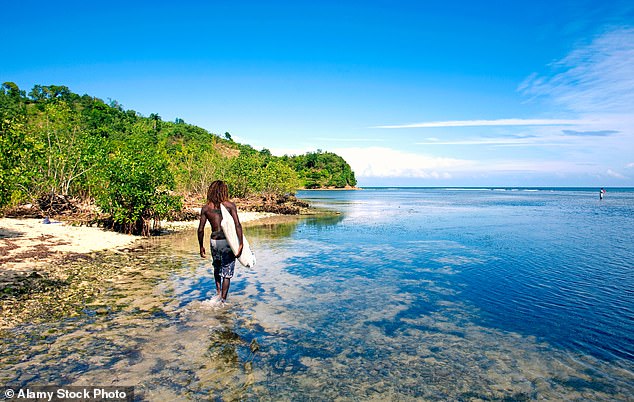The U.S. State Department is urging tourists to avoid visiting a Caribbean nation amid a state of emergency.
‘Level four: do not travel’ advisory The measure has been in effect since March in Haiti due to ongoing civil unrest, gang violence and riots in the country.
But on September 18, the U.S. State Department updated the advisory with details about travel risks, including kidnappings, street violence and armed robbery.
They wrote: ‘Kidnappings are widespread and American citizens have been victimized and injured or killed. Kidnappers may plan carefully or choose their victims at random, unforeseen times. Kidnappers even attack convoys.
‘Kidnapping cases often involve ransom demands. Families of victims have paid thousands of dollars to rescue their relatives.’
A “Level 4: Do Not Travel” alert has been issued for Haiti since March due to ongoing civil unrest, gang violence, and riots in the country. But on Sept. 18, the U.S. State Department updated the alert with details about the risk of travel. (File image)
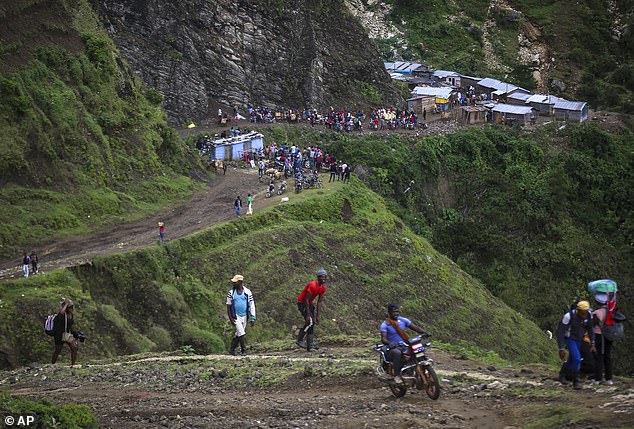
Crossing the land border between Haiti and the Dominican Republic is extremely risky, as travelers can face costly immigration fines and threats of kidnapping and violence, as the roads are where these cases are most likely to occur. Pictured: People walk through the mountains to avoid gang violence in the Kenscoff neighborhood in Port-au-Prince, Haiti, on September 10
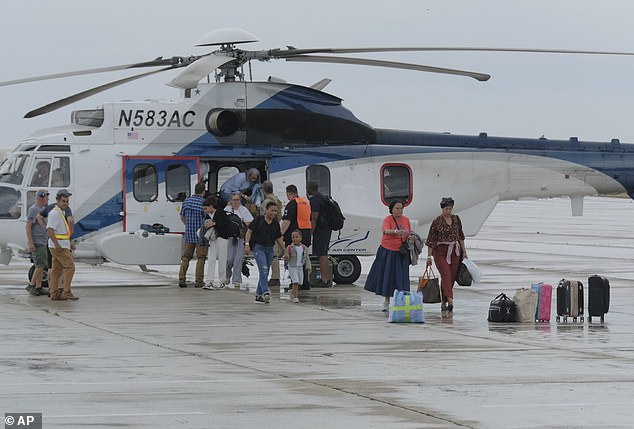
Toussaint Louverture International Airport in the commune of Port-au-Prince is a hotbed of carjackings and armed robberies, which often target lone drivers and women. Pictured: People evacuated from Haiti in a US helicopter arriving at Las Americas Airport in Santo Domingo, Dominican Republic, on March 22
They also say that street violence has intensified, leading to an increase in deaths and assaults.
A “focal point” of these attacks is concentrated at the Toussaint Louverture International Airport in the commune of Port-au-Prince.
At the international airport, the department said armed robberies and carjackings are likely, often targeting lone drivers and women.
Alarmingly, the warning said there is little the U.S. government can do for its citizens in Haiti due to a general lack of resources.
Even U.S. personnel are subject to a “nighttime curfew” and are prohibited from using public transportation, visiting banks and ATMs, driving or traveling anywhere at night, and venturing out without prior approval and security measures in place.
Crossing the land border between Haiti and the Dominican Republic is extremely risky as travelers can face costly immigration fines and threats of kidnapping and violence, as the roads are where these instances are likely to occur.
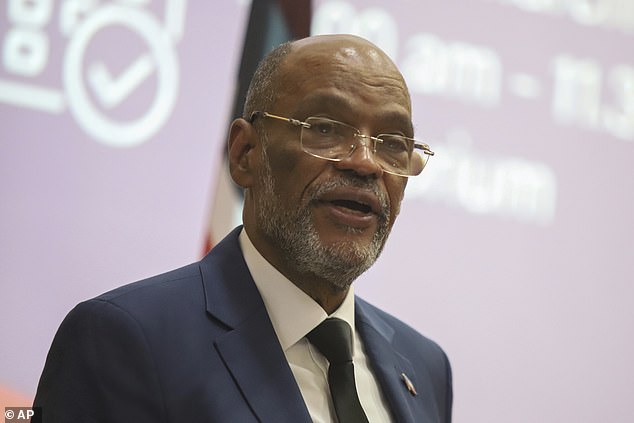
The recent massacre came after Haiti’s Prime Minister Ariel Henry traveled to Kenya to persuade the African country to expedite a UN-approved donation of 1,000 police officers to help restore order in Haiti. Pictured: Ariel Henry at a public lecture at the United States International University in Nairobi, Kenya, on March 1.
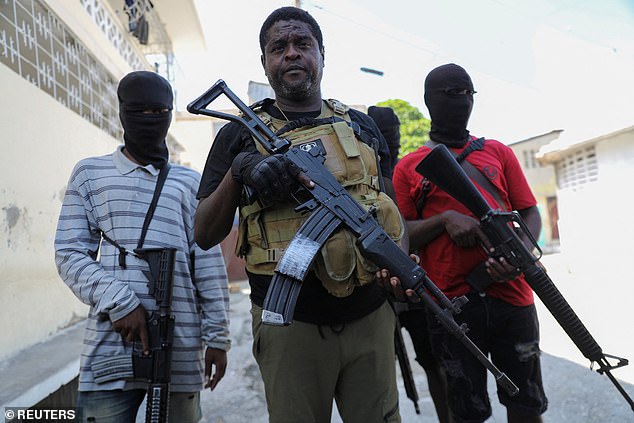
Powerful gang leader Jimmy ‘Barbeque’ Cherizier began his campaign of terror on February 29 and claims responsibility for gangs breaking into two of the country’s largest prisons and freeing 4,000 prisoners. Pictured: Former police officer Jimmy ‘Barbecue’ Cherizier (centre), leader of the ‘G9’ gang alliance, is flanked by gang members after a press conference at Delmas 6, Port-au-Prince, Haiti, March 5
The recent massacre came after Haiti’s Prime Minister Ariel Henry flew to Kenya to persuade the African country to speed up its UN-approved donation of 1,000 police officers to help restore order in Haiti and rid it of gangs by the end of February.
Powerful gang leader Jimmy “Barbeque” Cherizier began his campaign of terror on February 29 after claiming responsibility for gangs storming two of the country’s largest prisons and freeing 4,000 prisoners before burning government buildings and attacking a dozen police stations.
Cherizier said his goal was to block Henry’s return and capture police and government officials.
Even after securing the 1,000 Kenyan police officers, Henry was unable to return to Kenya. Weeks later, he resigned from his post.
Now the government has disintegrated.
The warning came six months after social media star YourFellowArab was taken hostage in Haiti by one of the gangs that have emerged as de facto leaders amid the violence that has devastated the Caribbean island.
YourFellowArab, whose real name is Addison Pierre Maalouf, was on the island to interview the man popularly known as Jimmy ‘Barbecue’ Cerisier, the country’s most powerful gang leader.
On March 14, Maalouf was kidnapped by a gang known as the 400 Mawozo, led by the FBI’s most wanted drug lord Lanmo 100 jou. Maalouf was being held for a ransom of $600,000.
Since the killings began, 8,400 people have been killed, injured or abducted, the report said. Global Centre for the Responsibility to Protect reported.
Five million Haitians are facing acute famine, 1.6 million are at risk of starvation and more than 580,000 people are currently displaced.
(tags to translate)dailymail

